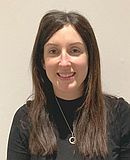Meet our Dyslexia Tutors
Our Dyslexia tutors are all qualified teachers with additional experience and qualifications in supporting children with Dyslexia. We believe one to one support can make a huge difference to a child’s education. We also offer Dyslexia Assessments by a qualified assessor, Frankie. Our tutors can provide support across a range of school entrance, GCSE and A-level subjects. Below, you will find a list of our tutors and further information. We also provide an in house Dyslexia Assessor for rapid assessments. Refine your results by using the search box above, or view all Dyslexia tutors below:
Our SEN Dyslexia tutors are currently taking bookings for the next academic year 2026-2027 so please get in touch if you would like to secure their services.







